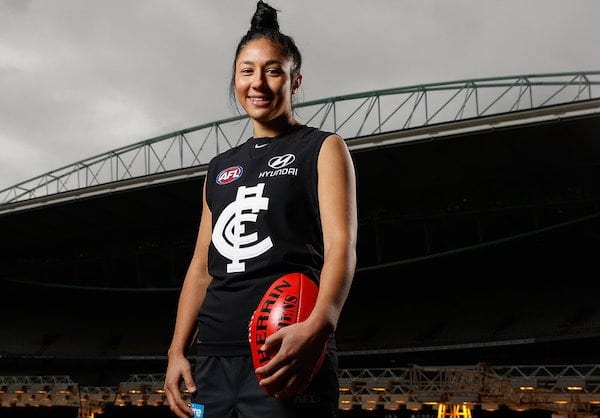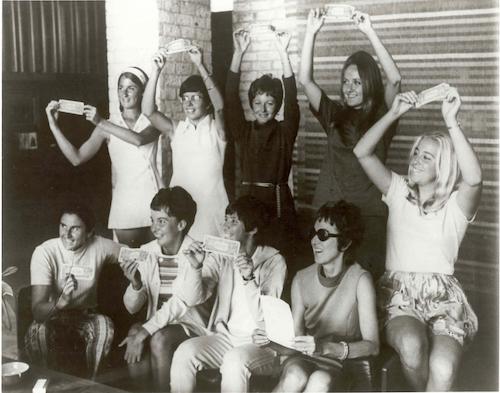At issue has been the league’s new three-year collective bargaining agreement (“CBA”), which 30 percent of the players rejected. Though not obliged to put the CBA to a vote, the Player’s Association has a convention requiring it to obtain the support of 75 percent of the players. It fell 5 percent short, thus all were forced back to the negotiating table, including the union itself with the 30 percent of its own members who were opposed to the agreement.
According to reports, pay and how the women are “valued” were issues. The women’s pay is pegged pro-rata to the starting wage of a rookie male player and the women, unlike the men, are not paid a yearly salary, meaning many have to hold down other jobs to make ends meet.
There is a significant gender pay gap. In the men’s national AFL competition, the average player salary in 2018 was $362,471, with 31 AFL players paid more than $800,000 for the 2018 season. Players in the AFLW are paid between $13,400 and $24,600 per season.
Also at issue, the length of the season, which some players told me detracted from their love of the game. (And if they’re obviously not there for money but love, why on earth would anyone want to undermine that?)
The fact that all the teams don’t get a chance to play each other and the highly pressured, short nature of the season doesn’t enable players to go on a similar “journey” to that of the men — growing as individual players and a team over time – takes the joy out of the game for many.
Gender workplace advocate Prue Gilbert resigned from the AFLPA’s women’s football advisory group over the affair. Now why on earth was that necessary? Maybe because the Player’s Association didn’t prove itself willing or capable to advocate fully on the women’s behalf.
Fair enough. So talk it out, which they did.
As has been reported, of the 30 percent of the players opposed to the CBA, the most-high profile amongst the group includes Carlton’s Darcy Vescio, Geelong’s Meg McDonald, GWS’ Pepa Randall and St Kilda’s Catherine Phillips. The group Fox Sports dubbed the “quartet of power”, have since had further discussions with the Player’s Association and with the AFL chief executive Gillon McLachlan. And they have hashed out a new deal, the details of which are not yet entirely clear, which will be put to a new vote as early as next week.
Here’s my issue. Yes, I want these women properly valued, I want them to get to play the game they love the way it should be played, and I want them to have certainty that the AFL is committed to the future of the women’s game. And I dearly hope that happens.
But what has left me especially vexed over the past few weeks is that these women have been described by the head of their own union as running an orchestrated campaign to “undermine” and “weakin” their own union. They have been referred in the press as “ring leaders” creating “drama”. They have been called a “disgruntled group”.
Why can’t we have a conversation about how we value – or don’t – women in sport without casting women who fight their corner as “disgruntled” wreckers creating “drama”?
Yes they are a minority, but 30 percent is a pretty significant minority. I am sure there were a heck of a lot more than nine women playing tennis in 1970, when the so-called “Original 9”, including Billie Jean King, facing the prospect of playing in a long-running tournament in Los Angeles knowing male winners would receive prize money eight times larger than theirs, signed symbolic $1 contracts in order to compete in the tournament that would lay the foundation for the creation of the Women’s Tennis Association (WTA).
This is what a determined “minority” of players looks like who are willing to stick their head above the parapet and fight for change. They too faced sexist backlash from the mainstream tennis industry and the press, but their actions paved the way for equal pay and more opportunities for women in tennis.
So I’ll just say this. I’m not having it. I’m not having any of those words used to describe these women. They are my heroes, on and off the field. And, like the good women who came before them and those who will, no doubt, come after them, they are pushing a door open for many of us to walk through. “Brave”, yes, that’s more like it.
Kristine Ziwica tweets @KZiwica



